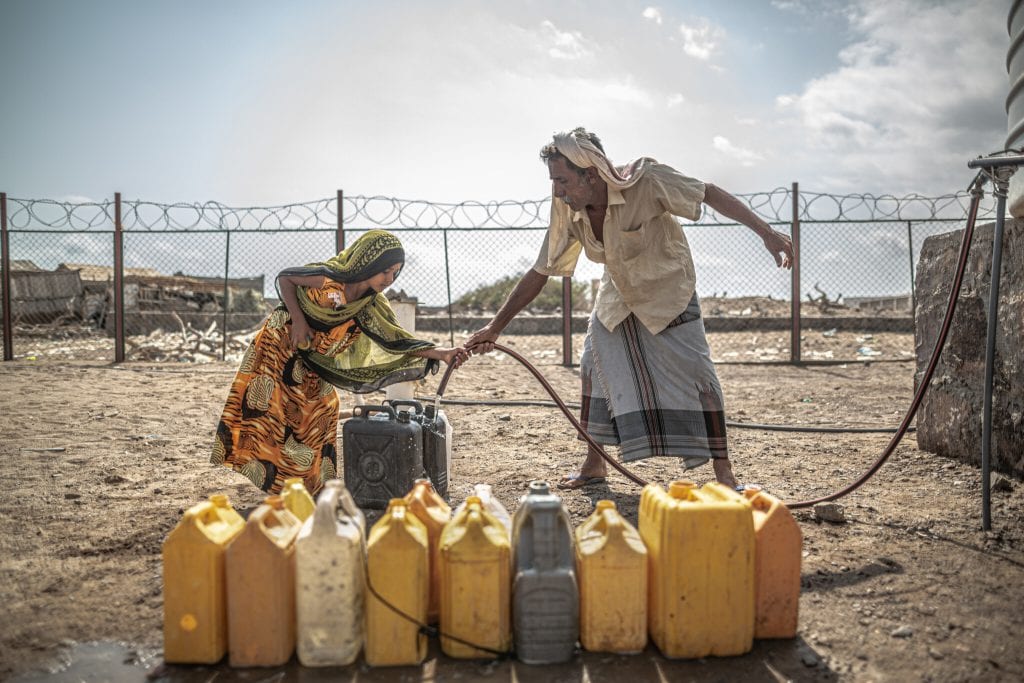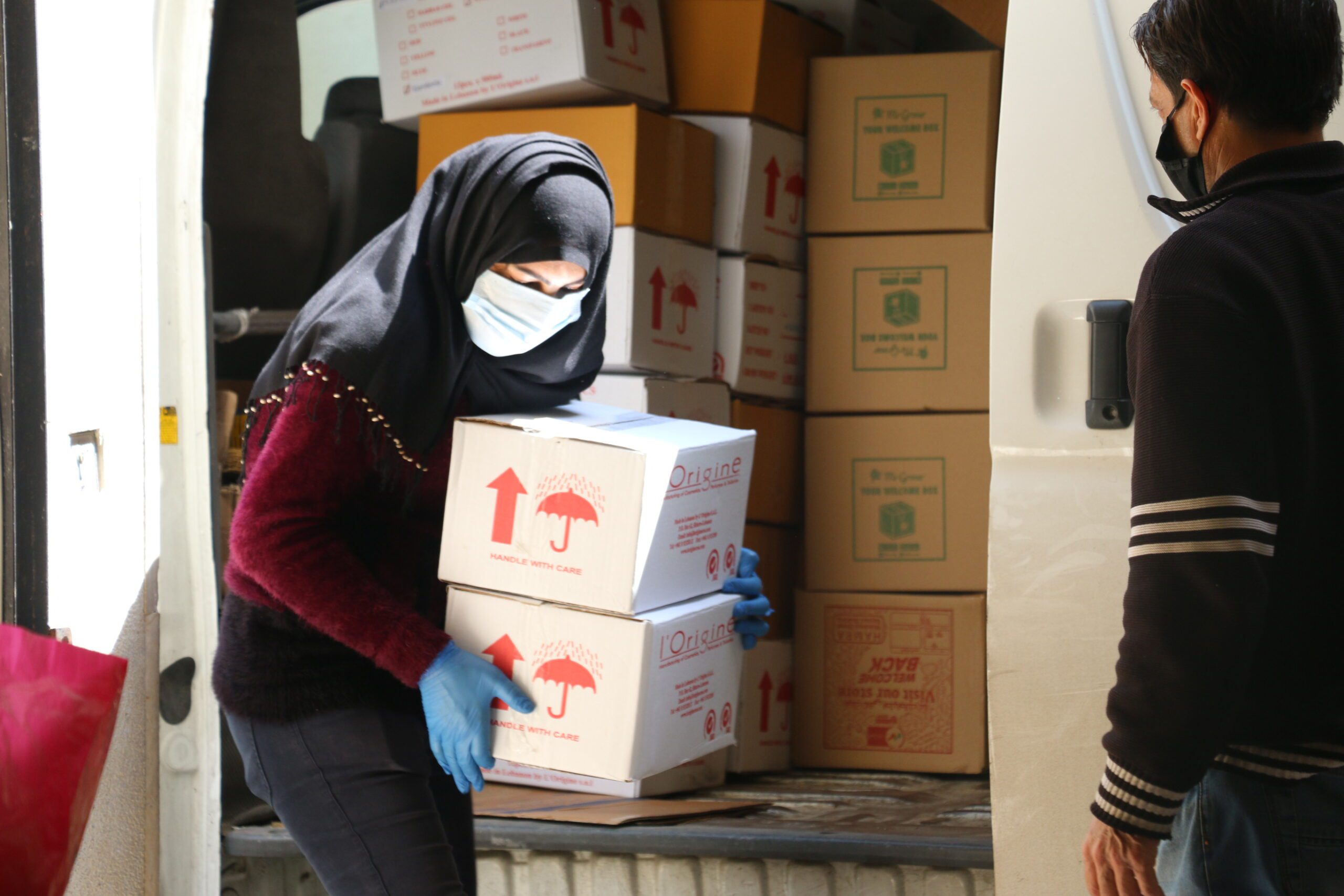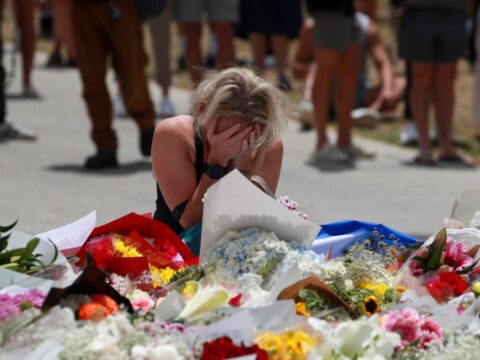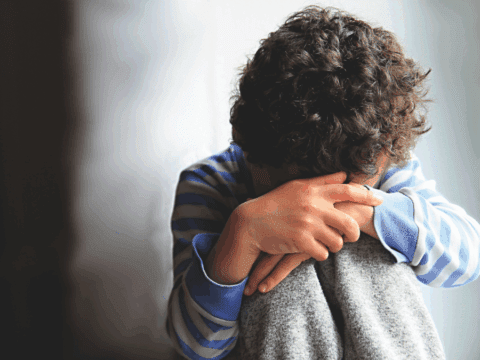The COVID-19 pandemic has touched every Canadian in some way, but has also affected the lives of many displaced and vulnerable people around the world.
The Humanitarian Coalition coordinates fundraising for and promotes the efforts of 12 Canadian humanitarian aid organizations that are all working to combat the impacts of the pandemic on the people they help.
You may unsubscribe from any of our newsletters at any time.
These include organizations like Oxfam Canada, World Vision and the Canadian Foodgrains Bank, which is formed of partnerships with churches and church-based groups that work to end world hunger.
Jim Cornelius, the executive director of the Canadian Foodgrains Bank, spoke to Emma Prestwich on behalf of the Humanitarian Coalition and his own organization.
Emma Prestwich: What are the main concerns for these organizations right now?
Jim Cornelius: I think there are three primary concerns that organizations involved in international development have.
First are the health impacts of COVID-19 on different populations around the world. And at this point, it hasn’t hit really hard in many of the developing countries that we’re working in, but there is a concern that if it does, they don’t have the health infrastructure to really effectively address and treat it, particularly if it was to get into some of the very congested refugee camps or really start to spread widely in some of the slums in the major cities.
I would say that the second concern is the secondary impacts of the health crisis. Economic shutdowns and efforts to control the spread of the virus have immediate impacts on people losing their jobs. So many people are in a very vulnerable [position], are depending on day labouring jobs and that’s how they feed their families. Or they’re petty traders and the markets are closed. Many of these households and families are facing hunger within days. They don’t have bank accounts to protect them. There are no social safety nets, no CERB quickly being put in place to get money into their accounts. That’s what we’re finding: a major, quickly developing crisis in many of the countries where many of our agencies are working.
More on Broadview: Coming of age in a Rohingya refugee camp
Then the third area we’re quite concerned about is how much supply chains will start to be disrupted. These are ensuring that actually food is moving into markets. We’re concerned that countries could start to put export bans on. A lot of countries are depending on importing food and if suddenly that food supply starts to break down or if trucks can’t move and get food into different markets, then you’d have a different crisis starting to emerge. At this point, we’ve only seen minor disruptions so far, but we’re concerned if these problems were to become more significant, it could lead to a humanitarian crisis in its own right.
EP: What is the situation for people in refugee camps right now?
JC: At this point, they’re probably better off, because they have a supply system, an income distribution system, and so many of the agencies are still able to operate and are still able to get food in. What we’re worried about is should we not be able to provide food or the supply chain gets broken down, then they’d be in very vulnerable situations. The people that are being impacted most directly and most immediately are actually the urban poor, who depend on day labouring jobs, petty trading of various sorts.
I think the World Food Programme and other agencies are working hard with local governments to try and ensure that we’re still allowed to get food into refugee camps and to camps of displaced people, because if that were to break down, it would be a catastrophe. I know that there have been some big disruptions in Cox’s Bazar in Bangladesh where a lot of the Rohingya refugees are settled. That’s the one camp that I’m aware of where we’re having some major supply constraints and agencies not allowed to operate, and so we’re still really trying to get the word out as to exactly what’s happening there.
EP: How do these member organizations — including the Canadian Foodgrains Bank — support the urban poor in these countries?
JC: So for many of us, we haven’t had our programs set up to do that. We’ve generally been working with displaced populations and refugees. Most widespread hunger has traditionally been in rural areas, so many of us have programs set up to work quickly with rural populations. In cities, there’s less emergency-level hunger, because people are there able to find work, even if it’s just occasional work, that allows them to survive. And now what’s happened with this economic shutdown is suddenly they’ve become the most vulnerable populations. I think we’re all scrambling a bit to begin to look at those contexts and decide how we can best begin to respond.
Many of our partners on the ground are engaging with their governments, because what’s going to be needed if this extends for any length of time is for governments to bring in fairly extensive programs to assist the urban poor. It’s not something that the international community, or agencies like ourselves, will be able to do alone.

EP: But you’re looking to retool your efforts, at least for now, to help these people that are hit the hardest?
JC: Yes, absolutely. Things are happening on a fairly small scale at this point and we’re all looking at what we have to do to start to scale that up. But I would say that many of us have our programs and groups that we have been working with that we need to sustain our funding for. Because if we were to suddenly say, “we’re going to stop providing assistance in these refugee camps, or to these places already affected by drought,” then they’ll quickly fall into crisis mode. So we can’t take money that we already have committed to people facing crisis levels of hunger and move it to these other areas. We have to find additional dollars to do that, and that’s a big challenge.
EP: So you are asking Canadians to support your member organizations additionally to help with this situation?
JC: What’s happening right now for many of our agencies is initially just to sustain the level of funding that we have to be able to keep programs going. Quite rightly, Canadians are concerned about what’s happening in their own communities and neighbourhoods. The government of Canada, understandably, is very focused on making sure that Canadians’ needs are being met. There was a big fundraiser for the food banks recently that was quite successful.
I think people are also starting to also recognize that this is a global pandemic, not just a crisis in Canada and that many others in other parts of the world where their governments have less capacity to respond are facing crises right now. So we’re starting to see more and more people recognize that and provide support for our work there. At the same time, we recognize that some people are simply not able to do it — they’ve been traditional supporters, they’ve lost their jobs, their own financial situations are in difficulty. So we’ve had some very large donations come in from major donors who recognize that this time, that they need to do more and can do more.
EP: The Canadian Foodgrains Bank is a Christian organization. What would you say to people of faith in an appeal to get them to help?
JC: One of the things that’s at the heart of our faith tradition is that we understand that the neighbour is not just your family, it’s not just the person on your street or from your ethnic group, but the neighbour is the stranger, the sojourner, the person that is in need — whether they are on your street or in your city or, in fact, across an ocean. So much of our scriptures talk about the fact that you need to step beyond your immediate family or your immediate in group to reach out to the other. And that’s exactly what this situation is like.
This interview has been condensed and edited.
Broadview is an award-winning progressive Christian magazine, featuring stories about spirituality, justice and ethical living. For more of our content, subscribe to the magazine today.














